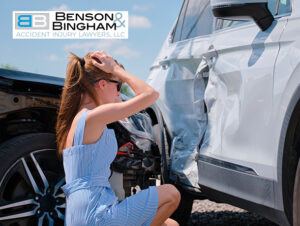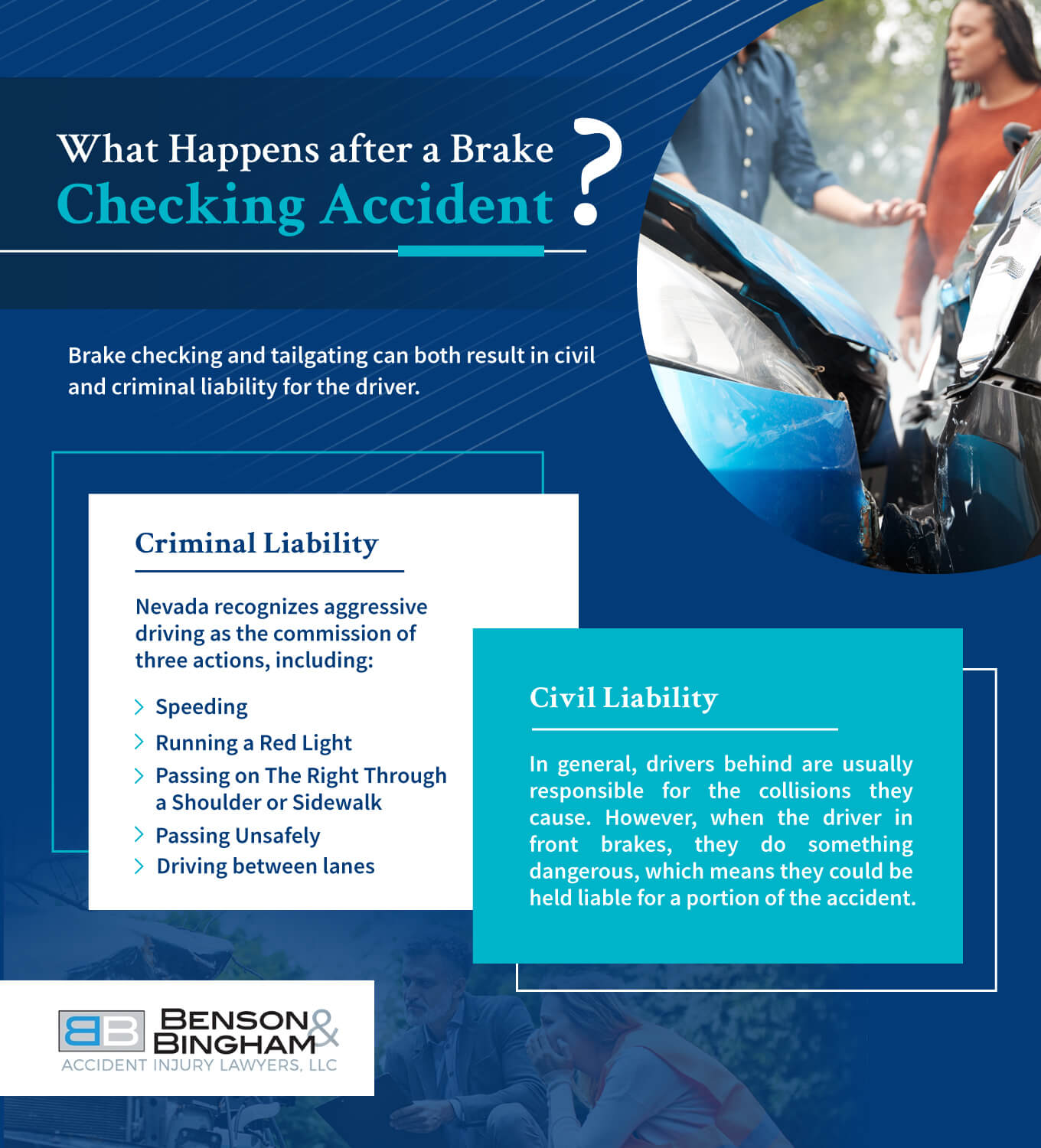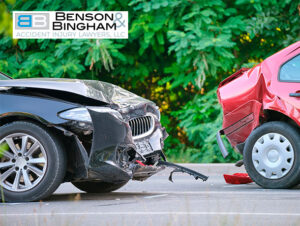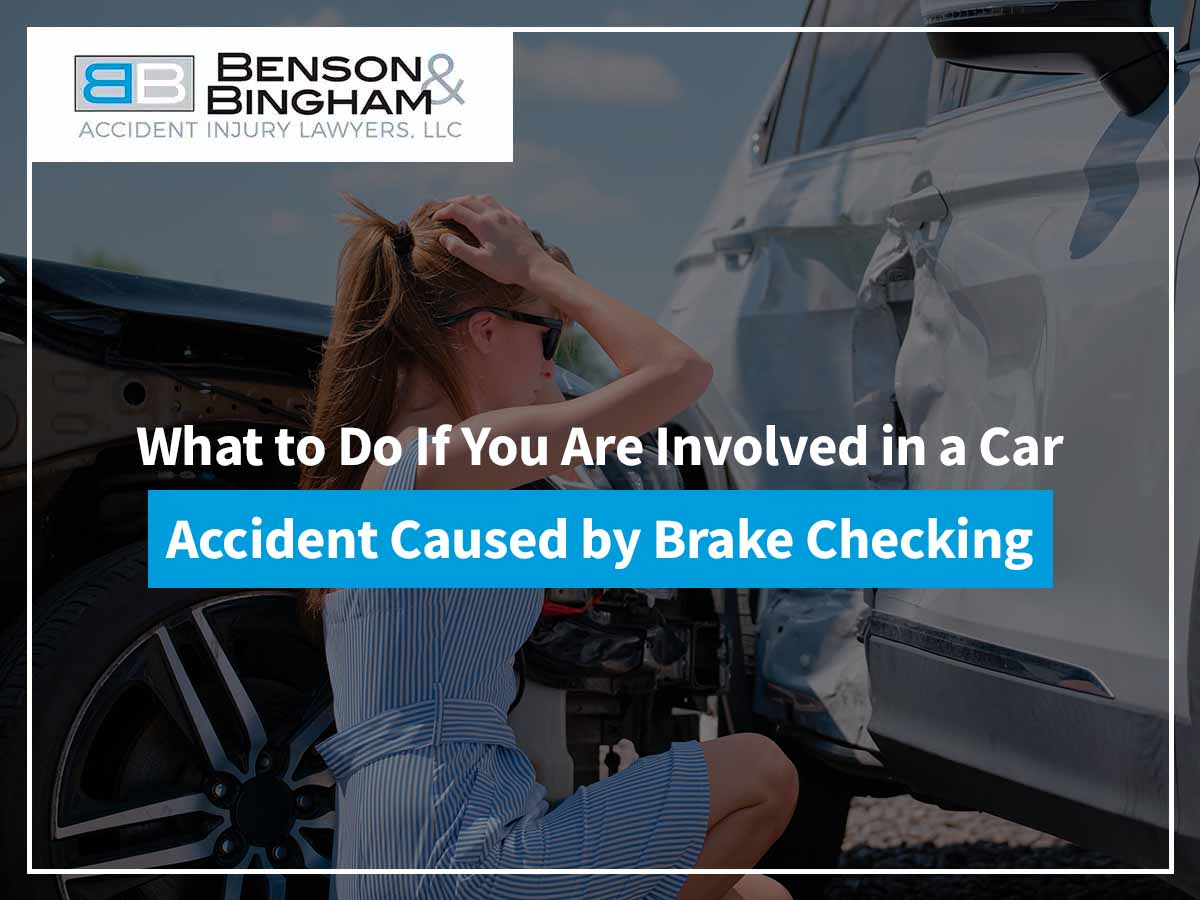Understanding Brake Checking: Liability, Consequences, & Seeking Legal Help In Nevada
Anyone who has driven through Las Vegas knows that the streets are filled with drivers who follow too closely. The heavy traffic, impatience, tourists, and aggressive drivers make a perfect storm for tailgating and rear-end accidents. Although the right response to tailgating is to move over so the tailgater can pass, some drivers choose to escalate the situation by brake-checking. Sometimes this causes the tailgater to back off, but other times, the vehicles crash, and each driver believes the other is at fault.

If you’ve been in an incident like this, you might be wondering what you should do now. Your first step after the accident is to call a trusted Nevada personal injury lawyer for guidance. Never admit fault for the accident and follow your attorney’s advice.
What Is Brake Checking?
Brake checking is a response to tailgating in which the driver in the front vehicle taps or slams on their brakes to try to encourage the tailgater to back off.
If the tailgating driver has quick reflexes and has left enough space between vehicles, they may be able to avoid a crash. But in many cases, brake checking can lead to accidents, especially if the tailgating driver has poorly functioning brakes, is distracted, or driving at a high speed.
What Happens To Drivers & Passengers In a Rear End Collision?
Tailgating commonly leads to rear end crashes, especially when the other driver escalates the situation by brake checking. When one vehicle rear ends another, all passengers and drivers are at risk of serious injuries. The people in the tailgater’s car will fall forward from the force of the crash. They may suffer from chest injuries, broken ribs, whiplash, back and neck injuries, internal bleeding, broken knees or legs from hitting the dashboard, and other injuries. A person who isn’t wearing a seatbelt may fly through the windshield and be seriously injured or killed. Even though the airbags will likely deploy, victims may still suffer from facial fractures, concussions, and traumatic brain injuries.
The occupants of the brake-checker’s vehicle are also likely to suffer from whiplash, neck and back injuries, chest injuries, traumatic brain injuries, and more. When a vehicle is hit from the rear, airbags typically do not deploy, which can result in serious injuries if the vehicle occupants slam into the windshield or dashboard. Anyone who has been injured in a rear end collision should contact a trusted Las Vegas car accident lawyer as soon as possible.

What Happens After a Brake Checking Accident?
Brake checking and tailgating can both result in civil and criminal liability for the driver.
Criminal Liability

Nevada recognizes aggressive driving as the commission of three actions, including:
- Speeding
- Running a red light
- Passing on the right through a shoulder or sidewalk
- Passing unsafely
- Tailgating
- Driving between lanes
- Not yielding right of way
- Creating a hazard to other drivers – which could include brake checking
Reckless driving is defined as willful and wanton disregard for the safety of others on the road and only requires one action. Although tailgating can be argued as careless or negligent, brake checking is a deliberate and intentional action and could result in a reckless driving conviction, which carries a sentence of up to 6 months of jail along with other consequences.
Civil Liability
Generally speaking, rear end collisions are the fault of the rear driver because they failed to fulfill their responsibility to follow at a safe distance. This means tailgaters are usually responsible for collisions they cause. However, when the front driver brake checks, they do something dangerous and breach their duty to drive with care, which means they could be deemed liable for some or all of the responsibility for the crash. Your Las Vegas car accident law firm can help you understand the law and how it applies to your car accident.
How Does The Law Of Comparative Negligence Apply?
When an accident is caused by multiple people, Nevada follows the law of comparative negligence. This means that the driver who is determined to be at least 51% responsible for the crash is legally liable for the damages of the victims and is ineligible for financial compensation. However, more than one party can be partially responsible. In those cases, they can still seek compensation for their damages, which will be scaled according to their percentage of liability.
In the case of tailgating and brake checking, a brake checker may be deemed 70% liable while the tailgater is 30% liable. This would mean that the brake checker is ineligible for compensation and must pay 70% of the tailgater’s damages.
Looking For Representation After a Brake Checking Incident?
If you’ve been injured in a car accident in Nevada that resulted from someone else’s negligence or recklessness, wether in a car accident in Reno or in Vegas, call the trusted personal injury attorneys at Benson And Bingham Accident Injury Lawyers, LLC. Our firm specializes in representing victims of car accidents and is ready to fight aggressively for your rights and interests. We use our decades of experience and comprehensive knowledge of personal injury law to successfully negotiate settlements for our clients’ injuries. If necessary, we have the skills and resources to pursue litigation on your behalf. Contact our firm today to speak with one of our attorneys and learn more about how we can help you!
LISTEN TO THE PODCAST VERSION OF THIS ARTICLE


